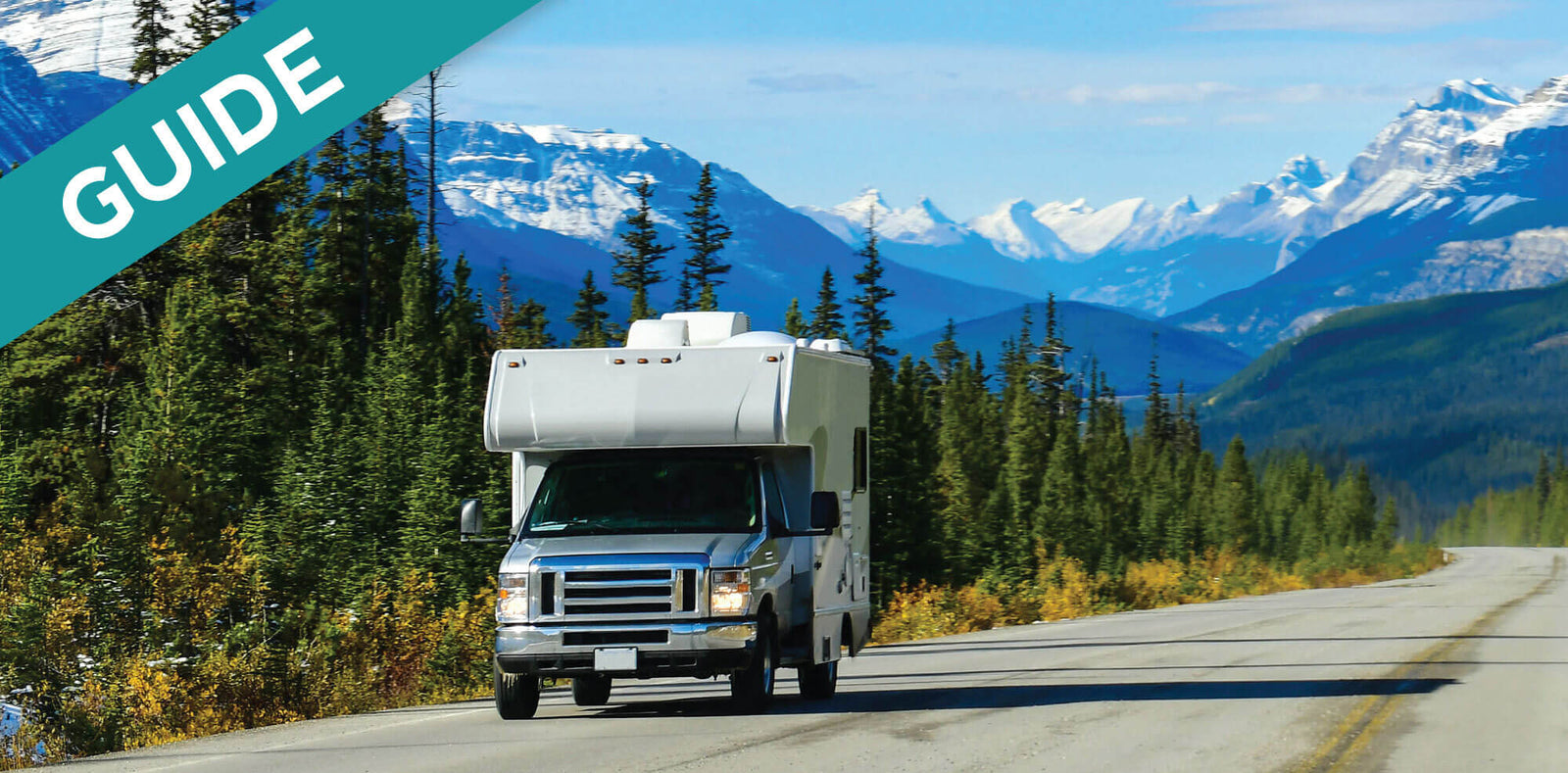
Key Points:
- The first step in rental RVing is choosing the right RV! There are several “classes” of RV, including Class A, Class B, Class C, Fifth wheels, and Travel Trailers. Different benefits and drawbacks come with each respective RV class.
- The cost of renting an RV depends upon the type of RV you choose. Class A RVs tend to be the most expensive, whereas fifth wheels and travel trailers are the cheapest. Please see below for specific information.
- RV living traditionally consists of camping in the Great Outdoors! There are a few options when considering how and where to camp: RV parks, RV campgrounds, and dry camping.
- The RV lifestyle is about having a spirit of discovery and building great memories! There are many RVing activities to choose from.
If you are considering joining the ranks of RVers around the country, a rental RV might be a great way to kick the tires on the lifestyle and see if it is something you’d like to get into full time. But, even renting an RV can be an overwhelming process. But, with a few pointers and some preparation beforehand, you’ll soon be hitting the road in your rental RV and living like a seasoned pro! This guide will cover those basics of renting an RV as well as some practical tips to make your time in your RV as great as possible. Let’s jump in!
Choosing The Right RV
Before you can travel in your rental RV, you’ll first need to choose the right one! RV rentals are generally separated into two basic types: towable and motorcoach.
Towable Type Trailers
The towable type of trailer requires that you have a separate vehicle that is able to tow the trailer. These trailers are great if you are wanting to travel to more remote locations, or you don’t want to tow a separate vehicle for driving around the area in which you’re camping. The downsides to these types of campers is that you have to have a truck or SUV that is rated to tow one of these. Depending on the size of the trailer, a full-size SUV should be able to handle to job, but be sure to talk to the rental company about your vehicle’s towing capacity before making any decisions. Another downfall is hitch installation needs. If your vehicle isn’t equipped with a hitch, you’re going to need to get one installed. This can be done somewhat affordably depending on who you use to install the hitch, but it is definitely something to keep in mind when making your choice.
Motorcoach Type Trailers
A motorcoach is a self-powered vehicle with its own engine and driving chassis. This type of unit does not require a separate vehicle. Motorcoaches offer an all-in-one package, no additional vehicle or hitch installation needed. These are a great choice for travelers who are looking for more convenience when renting an RV. Since you don’t need any specialized vehicle to use one of these, many rental companies specialize only in renting motorcoaches. There are a couple of drawbacks to motorcoaches that need to be mentioned. Firstly, if you want to travel to any places around your campsite, you’ll need an additional vehicle or mode of transportation. Some choose to tow bicycles or small scooters, but for those with young families this can be tough. This need for transportation is not at all a concern though, if you plan on taking the RV to the lake for the weekend and just hanging out.
All in all, your goals for your trip will dictate what kind of trailer you need. If you want more freedom to drive around the area and explore that way, a towable trailer might be the best option. But if you are looking for more convenience a motorcoach is your answer.
RV Classes
Rental RVs come in several “classes,” including class A, class B, class C, fifth wheel, and travel trailer. Let’s take some time to explore these classes in a little more detail.
Towable Type Classes
Travel trailers are part of the Towable Type Class. These need to be pulled behind a vehicle and can be found in many lengths and different levels of luxury. Fifth wheels are a generally larger type of towable trailer. While generally larger, fifth wheels still need to be pulled by a separate vehicle and can be found in many different sizes and floor-plans. Do note that fifth wheels do require full-size pickups and extensive modifications to allow the truck to hitch to a fifth wheel.
Motorcoach Type Classes
Class A RVs are bus-like and huge! They often boast the most attractive and luxurious amenities. Class B RVs are often called sleeper vans or camper vans. Because they’re built onto the chassis of a van, they’re a lot smaller than the previous class but still have many amenities. Believe it or not, Class C RVs are often a little bigger than Class B RVs. They are more fuel efficient, because they are built onto the chassis of a truck. However, they tend to be less luxurious than Class A or B.
Cost of Rental RVs
One of the most fundamental things you need to know if you are considering an RV rental is the cost! As of 2020, you should expect to find roughly the following prices:
- Class A: (older) $150-$300 per night; (newer) $350-$450 per night
- Class B: (older) $100-$200 per night; (newer) $200-$350 per night
- Class C: (older) $150-$200 per night; (newer) $200-$400 per night
- Fifth Wheel: (older) $50-$150 per night; (newer) $150-$300 per night
- Travel Trailer: (older) $50-$150 per night; (newer) $150-$200 per night
Now that we have the “need-to-knows” about RV Rental out of the way, let’s jump into some practical tips about RV living.
Tips for RV Living
In general, RVing is a way for people to get away from the hustle and bustle of everyday life. It is a way for people to experience the Great Outdoors, see new places, and have a ton of fun! RVing generally consists of traveling to a certain locality, camping, and enjoying the fun activities in the area. With that in mind, there are a few different camping options for you to choose from.
RV Parks or RV Campgrounds
Perhaps the easiest way to camp is at a campground or RV park. These typically require a fee, but they will often provide you with easy hookups for fresh water and a place to dump your gray and black water tanks. In addition, RV parks and campgrounds will often have a place to plug in electrical. While campgrounds and RV parks are a great first RVing destination, they can limit you from enjoying the less remote and less adventurous locales.
Guide Continued Below

Sign Up + Save
Join our newsletter and save $5 on your next order! Plus, get exclusive members-only discounts, access to our library of downloadable guides, and insider information on new products and promotions.
Dry Camping
If you want to travel to a more remote and adventurous location, dry camping (or boondocking) might be right for you. When dry camping, you’re not confined to a particular campground or park. Instead, you’re out in the wild! Dry camping is allowed for free on certain public lands including National Forests. Since you’re out in the wild, dry camping (while often very rewarding!) has some challenges. For one, you won’t have an electrical connection, so a generator will be necessary if you want power. Second, having enough water is important when dry camping. Be sure to fill up your fresh water tank before you leave. It may also be a great idea to bring some extra water with you. You can purchase portable water storage containers at any RV retailer. If you’re up for the challenge, dry camping can certainly be an adventure of a lifetime!
Getting The Most Out Of The RV Lifestyle
The RV lifestyle involves much more than simply staying in an RV. As we mentioned above, RVing is first and foremost about having a great experience! The RV lifestyle is about having a spirit of discovery—a thirst to see new places and have new, exciting experiences. RVers not only want to travel the world; they want to experience the world! Here are some fun activities that will take your RVing lifestyle to the next level:
- Biking and Hiking. Very often, there are many biking and/or hiking trails near where you camp. Many RVers travel for the express purpose of hiking or biking! You may choose to bring your own bicycles or hiking gear or rent them. All in all, hiking and biking can be excellent memory builders!
- Canoeing and Kayaking. If water-sports are more your forte, then canoeing and kayaking might also be a great activity! Many lakes, streams, and rivers are open for canoeing and kayaking, and rentals are relatively cheap.
- Golfing. Some RVers love to travel around the country and visit beautiful golf courses. If golfing is your sport, an RV might be a perfect means to get there!
- Exploring Local Cities and Towns.Getting a taste of the local culture by visiting the towns and cities located close to your campsite is a guaranteed way to build memories and collect some unforgettable experiences.
- Playing Games. As simple as it sounds, a few great board games can be an awesome way to build relationships and have a great time while RVing! Some of the most popular RVing games include Cards, Monopoly, Scrabble, Cornhole, and Ladder Golf.
One of the great things about the RV lifestyle is that the options and opportunities are almost limitless! Depending on where the road takes you, the fun activities can take a million different forms, giving you countless years of relationship building experiences and a lot of ways to check off items on your bucket list.
Conclusion
We hope that this guide has boosted your confidence to hit the road with your rental RV! While it can seem overwhelming at first, RVing ultimately builds lasting, rewarding memories. If you have any questions or concerns about this article—or even if you just have a fun RVing story—we’d love to hear it! Contact us here. Happy camping!

Prevent Common Problems In Your Tanks!
From misreading sensors, preventing clogs, or eliminating odors, we've got you covered no matter how you camp! All our best holding tank tips and trick information plus more can be found conveniently in one place when you download our FREE Unique Method Field Guide PDF. Achieve holding tank bliss today!
Get The Free Download Get The Free Download



